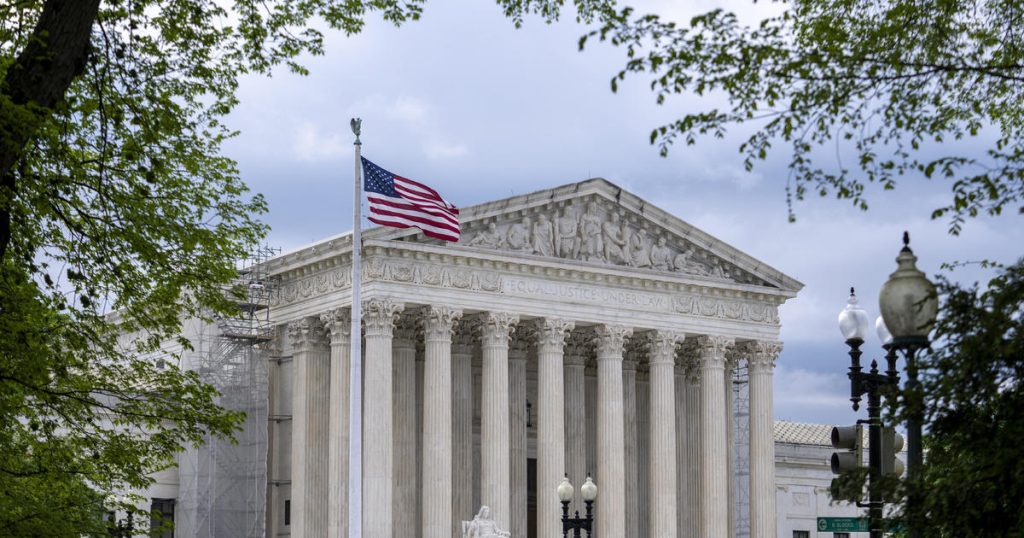The Supreme Court has declined to take up a challenge to Maryland’s ban on assault weapons, allowing legal proceedings to continue in the dispute. The ban, which was enacted in response to the 2012 shooting at Sandy Hook Elementary School, prohibits the possession, sale, transfer, or purchase of certain semiautomatic rifles. The challengers argue that the law violates the Second Amendment, but the full 4th Circuit has yet to issue a decision on the matter. The case is likely to eventually return to the Supreme Court once the appeals court rules.
In addition to Maryland, nine other states and the District of Columbia have enacted laws restricting semiautomatic weapons. A group of Maryland residents, a licensed gun dealer, and pro-Second Amendment groups challenged the ban in 2020, citing Second Amendment violations. The 4th Circuit had previously upheld the law, leading to a dismissal of the case at the district court level. However, the case was revived following a 2022 Supreme Court ruling that expanded the scope of the Second Amendment.
The 2022 ruling provided a framework for evaluating the constitutionality of gun laws based on historical tradition. Lower courts have since invalidated several longstanding gun restrictions that were found not to meet this standard. The Supreme Court heard a case in November related to one of these instances and is expected to issue a decision that will provide further guidance on applying the new standard. The pro-gun rights challengers had asked the Supreme Court to intervene in their case, arguing that a fundamental right is at stake and that the issue is of imperative importance.
Maryland officials urged the Supreme Court to decline the review of its firearms law, stating that it is too early for the court to get involved in the dispute. They argued that the ban on assault-style weapons aligns with the nation’s historical tradition of firearms regulation and passes constitutional scrutiny. Maryland Attorney General Anthony Brown emphasized that the ban on certain semiautomatic rifles is consistent with regulations on novel arms posing heightened dangers to public safety. Overall, the legal battle over Maryland’s assault weapons ban continues, with the Supreme Court likely to weigh in once the appeals court issues its decision.
Melissa Quinn, a politics reporter for CBSNews.com, covers U.S. politics with a focus on the Supreme Court and federal courts. She has written for various outlets, including the Washington Examiner, Daily Signal, and Alexandria Times. Quinn provides insight into the ongoing legal dispute over Maryland’s ban on assault weapons, highlighting the arguments made by both the challengers and the state officials. The case raises important questions about the intersection of gun rights and public safety, as well as the role of the Supreme Court in evaluating the constitutionality of firearms regulations.


